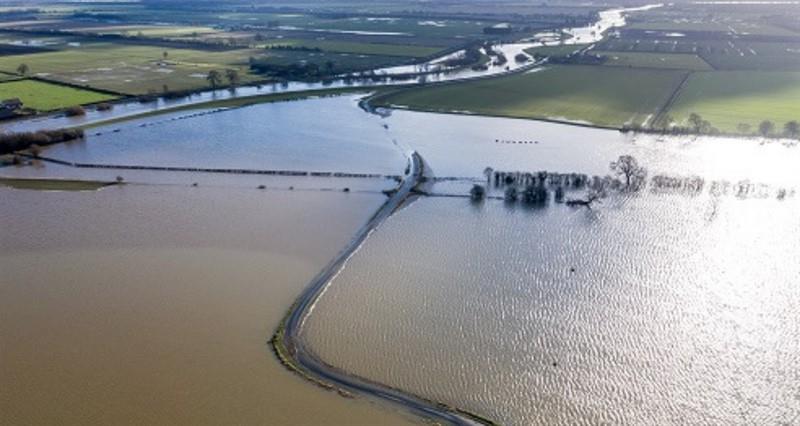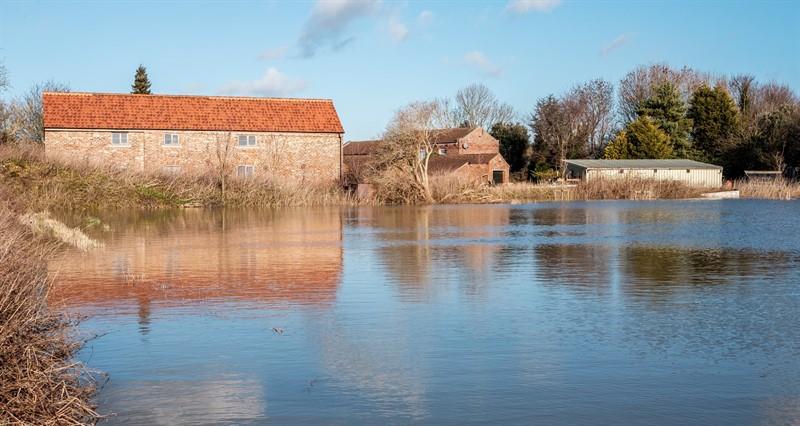England has a number of statutory bodies with responsibilities for making decisions about how national government allocations of money are spent on flood risk management.
Defra is the policymaker and funding provider, and the EA (Environment Agency) is the body with overview of the programme to deliver the outcomes to meet the policies set by Defra.
But no one-size-solution fits all and thatŌĆÖs where regional and area structures come to bear, most of which roughly align with river basin catchments (although not necessarily with local authority boundaries).
What are RFCCs?
To address the local aspects of flood defence investment decision making, the EA is assisted by a group of (regional flood and coastal committees).
RFCCs are managed, and their operation financed, by the EA. They have a range of members covering the lead local flood authorities in the RFCCŌĆÖs area, and also a range of appointed members representing other relevant interests, such as farming, the environment, internal drainage boards and national parks. An EA board member has nominated responsibility for the RFCCs.
Why are they important
Basically, all local spending plans for flood risk management are reviewed by the RFCCs. For nationally-allocated flood defence grant-in-aid, they recommend those plans for approval (or otherwise) by the EAŌĆÖs board.
Equally important to RFCCs is their own directly-raised funds from each lead local flood authority, known as the local levy, and the RFCC has full discretion about how and where it chooses to spend that money.
Flood defence grant-in-aid comes with a set of Treasury-established rules from the so-called ŌĆśgreen bookŌĆÖ about what you can spend it on, but the spending of local levy money is much less constrained as long as the cost-benefit is greater than one.
Projects can be proposed to the RFCC for spending that money and council-appointed members (whose councils contribute to the local levy fund) have a vote on how it is divided up.
The role of appointed members
Alongside council members, appointed members have a key role in ensuring that the views expressed, and the decisions made by RFCCs, are correctly balanced across economic, social and environmental interests within the RFCC area.
Money does not need to be spent where it is raised and RFCCs have a loose arrangement where, over time, local levy spending allocated within all the lead local flood authority areas balances out. RFCCs have much less say on the prioritisation of flood defence grant-in-aid, but can bring influences to bear on when nationally-approved works should be locally programmed.
Representing farmingŌĆÖs interests
Several years ago, three of the RFCCs had chairs who were farmers and just about all of them had active farming representatives appointed.
Today, there are no farmer chairs and a dwindling number of farming representatives and so the industryŌĆÖs voice is weakening when it should be strengthening.
"ItŌĆÖs a real opportunity for members to represent the views of the agricultural community and play an important role in influencing local priorities on flood risk management.ŌĆØ
NFU Deputy President Tom Bradshaw
Robert Caudwell, currently ADAŌĆÖs chair and a former RFCC farmer chair, said: ŌĆ£IŌĆÖd encourage the farming community to get involved in the RFCCs, to be at that top table and to help influence local flood risk management spending decisions to be made for the wider benefit of local rural communities and businesses, as well as their own interests.
ŌĆ£You might feel too busy right now to feel able to take part, but just consider the future implications it could have on your farm, your family and your businesses in the longer term.
ŌĆ£The effects of underinvestment on flood reduction for farming are enormous and it is now that we must collectively act,ŌĆØ he added.
Another previous farmer chair, Tim Farr, said that he was disappointed to see a lack of enthusiasm to get involved with the RFCCs and help shape the future of water management.
ŌĆ£My time as an RFCC chair connected me with national strategy and policy and how it could best be used locally to benefit communities, businesses and our environment,ŌĆØ he said.
ŌĆ£I felt that I was able to ensure that all demands were fairly represented and that funding was shared accordingly and based on priority across all needs within the RFCC area.ŌĆØ
The appointment process
As is normal with these kinds of appointments, there is a process involved in applying for and, if shortlisted, being interviewed by the EA and other RFCC appointees for the vacancy.┬Ā
These posts are managed by Defra.
If you are interested in applying for a role, please contact┬Āyour regional NFU office, who can advise you on any vacancies in your local RFCC and help support you in making your application.
NFU Deputy President Tom Bradshaw said: ŌĆ£IŌĆÖd encourage anyone with an interest in flood management to consider applying for an RFCC position.
"ItŌĆÖs a real opportunity for members to represent the views of the agricultural community and play an important role in influencing local priorities on flood risk management.ŌĆØ



